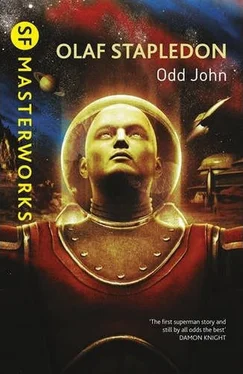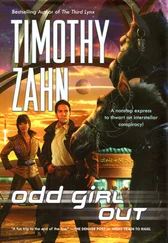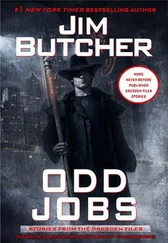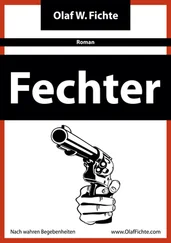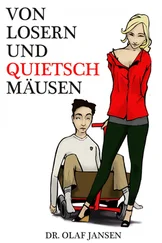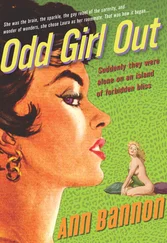Olaf Stapledon - Odd John
Здесь есть возможность читать онлайн «Olaf Stapledon - Odd John» весь текст электронной книги совершенно бесплатно (целиком полную версию без сокращений). В некоторых случаях можно слушать аудио, скачать через торрент в формате fb2 и присутствует краткое содержание. Город: London, Год выпуска: 2012, ISBN: 2012, Издательство: Hachette UK, Жанр: Фантастика и фэнтези, на английском языке. Описание произведения, (предисловие) а так же отзывы посетителей доступны на портале библиотеки ЛибКат.
- Название:Odd John
- Автор:
- Издательство:Hachette UK
- Жанр:
- Год:2012
- Город:London
- ISBN:9780450038570
- Рейтинг книги:5 / 5. Голосов: 1
-
Избранное:Добавить в избранное
- Отзывы:
-
Ваша оценка:
- 100
- 1
- 2
- 3
- 4
- 5
Odd John: краткое содержание, описание и аннотация
Предлагаем к чтению аннотацию, описание, краткое содержание или предисловие (зависит от того, что написал сам автор книги «Odd John»). Если вы не нашли необходимую информацию о книге — напишите в комментариях, мы постараемся отыскать её.
Odd John — читать онлайн бесплатно полную книгу (весь текст) целиком
Ниже представлен текст книги, разбитый по страницам. Система сохранения места последней прочитанной страницы, позволяет с удобством читать онлайн бесплатно книгу «Odd John», без необходимости каждый раз заново искать на чём Вы остановились. Поставьте закладку, и сможете в любой момент перейти на страницу, на которой закончили чтение.
Интервал:
Закладка:
But there were the deer; and beyond them the spiritual problem which was the real motive of his adventure, and had not yet been consciously faced at all. It was clear that if he did not greatly improve his way of life, he would have no time for that concentrated meditation and spiritual exercise which he so greatly needed. The killing of the stag became a symbol for him. The thought of it stirred unwonted feelings in him. “It was as though all the hunters of the past challenged me,” he said, “and as though, as though—well, as though the angels of God ordered me to do this little mighty deed in preparation for mightier deeds to come. I dreamt of stags, of their beauty and power and speed. I schemed and plotted, and rejected every plan. I stalked the herd, weaponless, intent only on learning their ways. One day I came upon some deer-stalkers, and I stalked them too, until they brought down a stag of ten; and how I despised them for their easy slaughter. To me they were just vermin preying upon my game. But when I had thought that thought, I laughed at myself; for I had no more right to the creatures than any one else.”
The story of how John finally took his stag seemed to me almost incredible, yet I could not but believe it. He had marked down as his quarry the finest beast of the herd, an eight-year-old monarch, bearing besides his brow, bay and tray, “three on top” on the right, and four on the left, The weight of antler gave his head a superb poise. One day John and the stag met one another face to face round a shoulder of moor. They stood for full three seconds, twenty paces apart, gazing at one another, the stag’s wide nostrils taking the scent of him. Then the beast swung round and cantered easefully away.
When John described that meeting, his strange eyes seemed to glow with dark fire. He said, I remember, “With my soul I saluted him. Then I pitied him, because he was doomed, and in the prime. But I remembered that I too was doomed. I suddenly knew that I should never reach my prime. And I laughed aloud, for him and for me, because life is brief and wild, and death too is in the picture.”
John took long to decide on the method of his attack. Should he dig a pit for him, or lasso him with a cord of hide, or set a mighty stone to fell him, or pierce him with a bone-pointed arrow? Few of these devices seemed practicable; all but the last seemed ugly, and that last was not practicable. For some time he busied himself making dirks of various kinds, of wood, of the fragile bones of hares, of keen stone splinters from a neighbouring mountain. Patient experiment produced at last a preposterous little stiletto of hard wood pointed with bone, the whole “streamlined” by filing upon the rock. With this fantastic weapon and his knowledge of anatomy, he proposed to leap on the stag from a hiding-place and pierce its heart. And this in the end he did, after many days of fruitless stalking and waiting. There was a little glade where the deer sometimes grazed, and beside it a rock some ten feet high. On the top of this rock he secreted himself early one morning, when the wind was such that his scent would not betray him. The great stag came round the shoulder of hill, attended by three hinds. Cautiously they sniffed and peered; then, at last, lowered their heads and peacefully grazed. Hour after hour John lay, waiting for the right beast to stray below the rock. But it was as though the stag deliberately avoided the danger-spot. Finally the four deer left the glade. Two more days were spent in vain watching. Not till the fourth day did John leap from the rock upon the back of the grazing stag, bringing it down with its right flank to the ground. Before the creature could regain its feet John had thrust his primitive weapon home with all his weight. The stag half righted itself, wildly swung its antlers, tearing John’s arm, then collapsed. And John, to his own surprise, behaved in a style most unseemly in a hunter. For the third time in his life, he burst into spontaneous tears.
For days afterwards he struggled to dismember the carcass with his inadequate implements. This task proved even more difficult than the killing, but in the end he found himself with a large quantity of meat, an invaluable hide, and the antlers, which, with desperate efforts, he smashed in pieces with a great stone and worked up as knives and other tools, by scraping them on the rocks.
At the end he could hardly lift his hands with fatigue, and they were covered with bleeding blisters. But the deed was accomplished. The hunters of all the ages saluted him, for he had done what none of them could have done. A child, he had gone naked into the wilderness and conquered it. And the angels of heaven smiled at him, and beckoned him to a higher adventure.
John’s way of life now changed. It had become a fairly easy matter for him to keep himself alive, and even in comfort. He set his traps, and let fly his arrows, and gathered his green things; but all was now routine work. He was able to carry it out while giving his best attention to the strange and disturbing events which were beginning to occur within his own mind.
It is obviously quite impossible for me to give anything like a true account of the spiritual side of John’s adventure in the wilderness. Yet to ignore it would be to ignore all that was most distinctive in John. I must at least try to set down as much of it as I was able to understand, for that little seems to me to have real significance for beings of my own species. Even if as a matter of fact I have merely misunderstood what he told me, my misunderstanding afforded at least to me a real enlightenment.
For a time he seems to have been chiefly concerned with art. He “sang against the waterfall.” He made and played his pan-pipes, apparently adopting some weird scale of his own. He played strange themes and figures on the shores of the loch, in the woods, on the mountain-tops, and in his rock home. He decorated his tools with engraved angles and curves consonant with their form and use. On pieces of bone and stone he recorded symbolically his adventures with fish and birds; and with the stag. He devised strange shapes which epitomized for him the tragedy of Homo sapiens , and the promise of his own kind. At the same time he was allowing the perceptual forms with which he was surrounded to work themselves deeply into his mind. He accepted with insight the quality of moor and sky and crag. From the bottom of his heart he gave thanks for all these subtle contacts with material reality; and found in them a spiritual refreshment which we also find, though confusedly and grudgingly. He was also constantly, and ever surprisingly, illuminated by the beauty of the beasts and birds on which he preyed, a beauty significant of their power and their frailty, their vitality and their obtuseness. Such perceived organic forms seem to have moved him far more deeply than I could comprehend. The stag, in particular, that he had killed and devoured, and now daily used, seems to have had some deep symbolism for him which I could but dimly appreciate, and will not attempt to describe. I remember his exclaiming, “How I knew him and praised him! And his death was his life’s crown.”
This remark epitomized, I believe, some new enlightenment which John was now receiving about himself and about Homo sapiens and indeed about all living things. The actual nature of that enlightenment I find it impossible to conceive, but certain dim reflections of it I do seem able to detect, and must try to record.
It will be remembered that John had shown, even as an infant, a surprising detachment and strange relish in situations in which he himself was the sufferer. Referring to this, he now said, “I could always enjoy the ‘realness’ and the neatness of my own pains and griefs, even while I detested them. But now I found myself faced with something of quite a new order of horribleness, and one which I could not get into place. Hitherto my distresses had been merely isolated smarts and temporary frustrations, but now I saw my whole future as something at once much more vivid and much more painfully frustrated than anything I had conceived. You see, I knew so clearly by now that I was a unique being, far more awake than other people. I was beginning to understand myself and discover all sorts of new and exquisite capacities in myself; and at the same time I saw now all too clearly that I was up against a savage race which would never tolerate me or my kind, and would sooner or later smash me with its brute weight. And when I told myself that after all this didn’t really matter, and that I was just a little self-important microbe making a fuss over nothing, something in me cried out imperiously that, even if I was of no account, the things I could do , the beauty I could make, and the worship that I was now beginning to conceive, did most emphatically matter, and must be brought to fruition. And I saw that there would be no fruition, that the exquisite things that it was my office to do would never be done. This was a sort of agony altogether different from anything that my adolescent mind had ever known.”
Читать дальшеИнтервал:
Закладка:
Похожие книги на «Odd John»
Представляем Вашему вниманию похожие книги на «Odd John» списком для выбора. Мы отобрали схожую по названию и смыслу литературу в надежде предоставить читателям больше вариантов отыскать новые, интересные, ещё непрочитанные произведения.
Обсуждение, отзывы о книге «Odd John» и просто собственные мнения читателей. Оставьте ваши комментарии, напишите, что Вы думаете о произведении, его смысле или главных героях. Укажите что конкретно понравилось, а что нет, и почему Вы так считаете.
